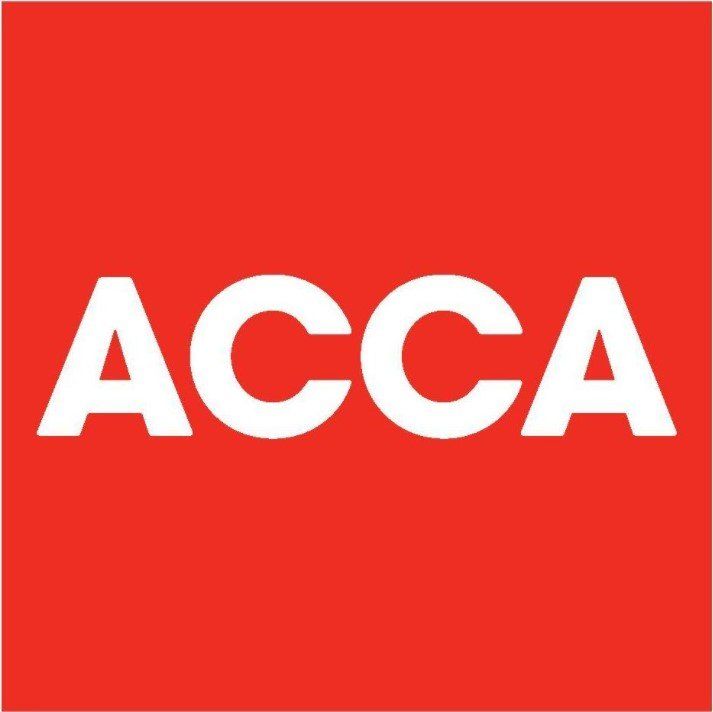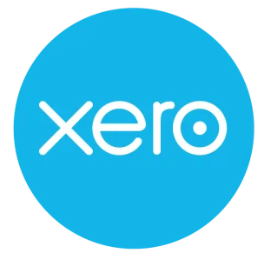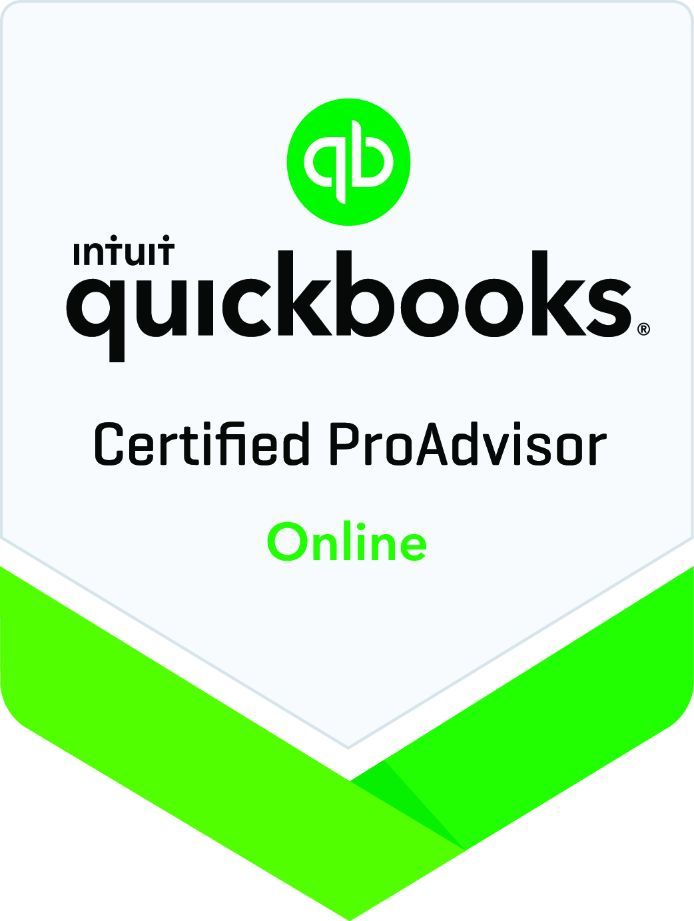Closing of Schools and its impacts on UK's Economy
21 March 2020
Why Have the Schools Closed in UK?
As the number of coronavirus patients is increasing day by day and also the number of deaths due to coronavirus is increasing, all the schools in UK are announced to be closed from Friday afternoon until further notice. This is to try to curb the spread of coronavirus. This measure was firstly taken in Wales, afterwards Scotland and then Northern Ireland, and now it’s declared by the Prime Minister that all the schools nationwide including nurseries and private schools will remain closed. The exams schedule has been changed and GCSE and A-level exams will not take place in May and June.
The children of key workers such as emergency workers, NHS staff and delivery workers would be the exception and would still be looked after.
The closure of schools has taken place to put some brakes on the system of transmission of coronavirus as the virus needs hosts for its spread. It is also to ensure thar NHS critical care may not reach critical capacity.
Effects of school closure on small businesses and economy
The closure of school will have far-reaching impacts on the economy. The small business owners will be hardest hit. For many working parents, the closure of schools and nurseries will mean huge issues. Some of them rather many of them will have to take time off work because of child care issues. Their leaves from work due to this reason will definitely affect business operations.
Closure of schools and cancellation of public events would massively hit business world creating a bad story. That bad story translates into less economic activity across the board which will range from hiring to investment to the availability of capital.
Initially lost wages due to being on leave for the parents who are taking care of their kids at home was a massive concern but the chancellor Rishi Sunak’s recent commitment of reimbursing 80% of furloughed workers wage costs up to £2,500 per month resolves this issue but at the same time there is fear of delays in these payments as HMRC systems are designed to take payments not make them. These extreme measures taken by government will ultimately contribute to the national debt.
The businesses owners of private nurseries and day care centers would be affected adversely and in extreme circumstances could result in shut down of businesses until the situation gets favorable.
In addition, businesses driven by students such as stationary items, uniforms, school transportation services and many more will also take a hit. With the closure of schools, the consumer demand for such products will reduce hence causing such businesses to go through contraction process which again in extreme circumstances might lead to shutdown of these businesses.
Closure of the schools would overall be causing damage to the economy. This will reinforce collapse in the expanding state and may result in the recession. Coronavirus has caused much damage to the economy and is continuing to do so with every passing day.
In uncertain times like this we must stand together and help one another hence Accounting Assist as always is here for you, please feel free to get in touch with us if you need financial advice, during this crucial time we are offering small businesses help with cash flow forecasting free of any charge and no current or future obligation so please feel free to get in touch should you need any help or advice.

Let’s face it; most creatives did not start their business to build spreadsheets. You started it to design, to express, to build something beautiful. But as your business grows, a few key numbers (that are not even in your spreadsheet) start to define your profit, peace of mind, and long-term success. Here are 5 numbers every creative founder should know; no accounting jargon, no spreadsheets required. 1. Your Minimum Monthly Amount to Breathe Not to break even. Not to “survive.” But to breathe; comfortably. This is the real number that covers: Your personal bills Your must-have business costs The cushion you need to sleep at night Why it matters: This becomes your pricing floor. If your business is not meeting this, you are undercharging or overstretched. 2. Your Time Cost per Project Ever thought, “That project took way longer than I planned”? You are not alone. Even without spreadsheets, just estimating how long you spend on: Discovery Design/revisions Client hand-holding Admin ...will show you if you’re making £15/hour or £150/hour. Why it matters: It is the first step to pricing profitably and planning sustainably. 3. Your “No” Number What is the income level where you can start saying “no” to bad-fit clients? Every creative business needs a “no” number. It is the point where you no longer need to say yes to: Undervaluing work Scope creep Clients who drain your energy Why it matters: Clarity here builds confidence. Confidence builds boundaries. Boundaries build profit. 4. Your Dream Project Number What does your dream client/project/retainer need to pay you to be worth it? Get specific: How many hours would it take? What would you need to hire or outsource? What price would make you feel proud? Why it matters: This becomes your north star when pitching, positioning, or saying yes. 5. Your WTF Number The number in your bank account where you start panicking. We all have one; let’s stop pretending we don’t. Knowing your personal “uh-oh” number allows you to: Plan in advance Create a cash buffer Avoid making panic-based decisions Why it matters: You cannot be creative when you are constantly in survival mode. 💬 Final Thoughts None of these numbers live in Xero or QuickBooks. They live in your head, your gut, your bank account, your boundaries. But when you start tracking them; even roughly, you build a business that feels clearer, calmer, and more in your control. Need help figuring them out? This is exactly what I help creatives and agencies do; without jargon or overwhelm. Get in touch here and let’s make your numbers make sense.

Let’s get one thing clear: If you’re a creative founder, a designer, a brand strategist, a digital storyteller; you are not bad with money. You’ve built something out of nothing. You’ve turned talent into a business. You’ve handled clients, deadlines, content, ideas, staff, suppliers and somehow kept it all afloat. That’s not “bad with money.” That’s resourceful. That’s resilient. That’s brilliant. But the truth is the financial world wasn’t built for people like you. The Finance World Talks in Spreadsheets. You Think in Stories, Colours and Strategy. Most accountants you meet will talk at you in jargon. They’ll send you tax returns and PDFs and expect you to just “get it.” But they don’t sit down and show you how to build a business that pays you properly. They don’t ask how much you want to earn. They don’t check how your cash flow feels when a client pays 30 days late. They assume you’re like every other business. But you’re not. You’re a creative. That changes everything. You Don’t Need a Lecture. You Need Someone Who Gets It. The feast-and-famine cycle is real. Some months you’re up, some months you’re coasting on fumes. You’re spinning so many plates; client work, social content, emails, proposals and when it comes to finances, you think: “I’ll look at that tomorrow.” But then tomorrow becomes next month. And suddenly it feels too messy. So you avoid it. And feel guilty. And assume it’s just you. But it’s not just you. This is happening to so many creatives. And I want you to know there’s nothing wrong with that. The Missing Piece? Financial Clarity That Feels Like It’s Made for You. Imagine if your accountant didn’t just talk tax. Imagine if they helped you: ✅ Understand where your money’s actually going ✅ Plan for quieter seasons ✅ Set prices that feel fair and profitable ✅ Build a cash flow you can actually breathe in ✅ And feel in control not confused, overwhelmed, or behind This isn’t about turning you into a finance expert. It’s about giving you the tools to run your business with clarity and calm so you can do more of what you love, without burning out. You’re the Creative Genius. Let Me Handle the Numbers. I work with creative founders, boutique agency owners and digital service businesses not just as an accountant, but as a partner in your business journey. I’ll explain the numbers in plain English, help you make strategic decisions, and be the quiet financial brain in the background so you can stay in your zone of genius. Ready to finally feel good about your finances? Let’s have a friendly, no-pressure chat just click below to book a free 20-minute intro call. 👉 https://calendly.com/accountingassist/multi 👉 Or connect with me on LinkedIn where I share financial insights for creative founders regularly

Businesses that deferred VAT due from 20 March to 30 June 2020 and still have payments to make now have option to opt into the VAT deferral new payment scheme to pay their deferred VAT in 11 interest free monthly installments. The businesses can either Pay the deferred VAT in full, on or before 31 March 2021 or Join the VAT deferral new payment scheme – the online service is open between 23 February and 21 June 2021 Contact HMRC on Telephone: 0800 024 1222 by 30 June if they need extra help to pay Failure to do one of above will result in interest or penalty. The businesses on the VAT Annual Accounting Scheme or the VAT Payment on Account Scheme,will be invited to join the new payment scheme later in March 2021. The new scheme lets you: Pay your deferred VAT in equal instalments, interest free Choose the number of instalments, from 2 to 11 (depending on when you join) To use the online service, you must: Join the scheme yourself, your agent cannot do this for you Still have deferred VAT to pay Be up to date with your VAT returns Join by 21 June 2021 Pay the first instalment when you join Pay your instalments by Direct Debit (if want to use the scheme but cannot pay by Direct Debit, there’s an alternative entry route for you) If you join the scheme, you can still have a Time to Pay arrangement for other HMRC debts and outstanding tax The month you decide to join the scheme will determine the maximum number of instalments that are available to you. If you join the scheme in March, you’ll be able to pay your deferred VAT in 11 instalments or fewer. The table below sets out the monthly joining deadlines (to allow for Direct Debit processing) and the corresponding number of maximum instalments (including the first payment): Join by Number of instalments available 19 March 2021 11 21 April 2021 10 19 May 2021 9 21 June 2021 8

Deferred tax can relate to a positive or negative asset and the entry can be found on a balance sheet. This entry refers to the tax that has been overpaid or is owed due to a few differences. The positive entry is considered asset and negative entry is liability. Deferred Tax Asset Over payment or advance payment of tax by a business in a period is marked on the balance sheet as a deferred tax asset. It shows that the company is entitled to a small tax break the next time they file their taxes. Paying in advance, creating tax assets helps a business that is looking to decrease the tax liability in the next period. Deferred Tax Liability On the other hand, Deferred tax liability occurs when a company’s estimated tax using income for a specific accounting period’s accounts is different to the taxable amount that is found on their tax return. In this case, a liability is entered on the balance sheet. This is where the amount that has been entered onto the balance sheet has to be paid in the future. Does it affect Cash flow? Deferred tax assets and liabilities can have a strong impact on cash flow. An increase in deferred tax liability or decrease in deferred tax assets is a source of cash. Likewise, a decrease in liability or an increase in deferred asset is a use of cash. Analyzing the change in deferred tax balances is important as it helps to understand which direction are the balances moving towards i.e. will the balances continue to grow in same direction or is there a likelihood of reversal in near future? Temporary Differences An important concept to be kept in mind in relation to deferred tax is temporary taxable differences. This occurs when a business has an asset with a liability value that does not match with the current taxable value of the asset. This happens when the accounting approach and tax laws differ in how the depreciation of an asset is handled. These temporary differences can impact on a financial account because they mean that income and expenses appear within one accounting period, but the tax is payable in a different accounting period. A taxable difference can be either taxable or deductible. Example to understand the deferred corporation tax: To understand the concept of deferred tax let’s consider an example. Your business generates £10,000 in profit per year. In the first year you purchase a laptop that costs £1,000 and the life of your laptop is 4 years, that is, after 4 years your laptop will be worthless. Hence, the depreciation for laptop would be calculated to be £250 per year. Now, let’s consider your profits to stay at exactly £10,000 for all the following years (5 years). Now, according to capital allowance rules, you can deduct the full £1,000 from your profit of £10,000 taxable profits in year one and hence will pay tax on a profit of £9,000 (rather being on the accounting treatment in year one to five and paying tax on a profit of £10,000-£250 = £9,750). Overall, the same amount is claimed and across the five years the same tax will be paid.

Insolvency is the state of being unable to pay the money owed, on time, when a business doesn’t have sufficient funds to meet its financial obligations it can become insolvent. A business having liabilities greater than its assets can be facing risk of insolvency. The insolvency of a business is a stressful situation for the company’s directors and staff members. There are two types of insolvencies; cash-flow insolvency and balance-sheet insolvency. Cash-flow insolvency is when a company has enough assets to pay the owed money, but it does not have the appropriate form of liquid payment e.g. cash. Balance-sheet insolvency, on the other hand, is when a company does not have enough assets to pay all of its debts. Consequences of Insolvency For Limited Companies For limited companies or limited liability partnerships known as “LLP’s”, the consequences of insolvency will mean that the business will go into liquidation and stop trading or go into administration and be sold. For Sole Traders For sole traders or partnerships, the business owners are liable for the debts and their personal assets are at risk of being sold to repay their debts. In some cases, for bankrupted business owners, there is a possibility to face BRO’s which are Bankruptcy Restriction Orders. This happens if the business owners have misbehaved in their business running history and is investigated and taken in action by Insolvency Service. Steps that can be taken to avoid insolvency For the business directors it is better to realize and identify the insolvency situation as soon as possible. Soft consequences and hard consequences both are of the same seriousness for both directors and the company’s viability. Here are some suggestions which, in our opinion, may be helpful for you to avoid this stress. First of all, you should identify the problem as soon as possible, so that further actions can be taken. This could be made possible only by knowing the symptoms of insolvency and having an eye on such symptoms Keep an eye on your cash flows , keeping on top of cash flow forecasting and budgeting on regular basis At the very early stage, arrange a conversation with the relevant creditors, whom you owe debts Try to get an extension in the debt repayment agreements. You can also alter this agreement after having a conversation with the creditor. These steps may give your business a space to get settled and stable financially In such a state, do not allow the company to incur further debt and do not continue to trade You can bounce back your business by seeking immediate help from a licensed insolvency practitioner. This will help you give many solutions and finance options for the recovery of your business which would be appropriate and available according to the situation. This will also give suggestions about how to increase your cash flow which will in return increase your assets and stability of the business Need help with reviewing your cash flow or budgeting? G et in touch with us for a no obligation assessment call.

UK Government Announces an Offer of 100% Guarantees on “Bounce Back Loans” The Chancellor Rishi Sunak, on Monday 27th April, has announced an offer of 100 per cent guarantees on “bounce back loans” of up to £50,000 for the smallest businesses affected by the coronavirus outbreak. “This is addition to business grants, tax deferrals, and the job retention scheme, which are already helping to support hundreds of thousands of small businesses.” This new micro-loan scheme is designed to help small businesses struggling to access credit during the current lockdown. The scheme would be providing a simple, quick and easy solution for those who are in need of smaller loans. These loans would cover 25% of a business’s turnover up to £50,000 Government is guaranteeing 100% of the loan which will be interest free for first 12 months The scheme allows businesses to borrow between £2,000 and £50,000 The scheme has been designed to ensure that small firms who need vital cash injections to keep operating can get finance in a matter of days The loans will be available from 9am 4th May and payments would be made within 24 hours of approval, with “no complex eligibility criteria” Applicants will not face a viability test but some fraud checks will have to be completed Small companies will be able to apply through an online

In this age of advanced technology and in an era of commotion, it’s everyone’s top most priority to use the most developed tools and technological facilities. It is important for businesses is to keep proper and secure records of all accounting data and information which can be achieved by the help of a software which is reliable, up to date, time saving and can prevent any trouble in the future. Cloud Accounting Software can solve all of troubles and complications coming in the way of keeping a smooth and easily accessible record of accounting data. This software is hosted on a remote server. This uses internet to access the accounting records and information. Hence in cloud accounting software you don’t need to store your data in your computer i.e. your computer’s hard drive. Also, this is not based on your local server. The data which is stored in the cloud can be easily accessed as and when required by signing in using your login and password. Your accounting data this way stays safe, secure and private. In simple terms it can be called online accounting. Key accounting features of cloud accounting software Easy management of intercompany transactions Easy creation of management reports in Excel Smart search, filters and drill-down features to slice and dice data Submission of tax returns digitally Easy accessibility to Microsoft Outlook Manage account records with an audit trail Multi-currency accounting and automated rate conversion Multi-dimensional ledgers Cloud accounting software versus traditional accounting software Here is a comparison between cloud accounting software and traditional software, through this would easily be recognized the benefits and advantages of cloud accounting software • Whilst using traditional software, you need a proper working place with a complete set up of computer and all the required gadgets. Also, for this purpose you need to stay at your office throughout the working hours. Cloud accounting software, however, doesn’t require this, you can work outside your office or wherever you are sitting as all records can be accessed remotely. • This is quite an obvious fact that doing any type of work manually requires more time, efforts and energy. In traditional software we have to do most of our work manually which wastes times as well as working potential. Cloud accounting software on the other hand gains information online as in the cloud accounting software you get access to HM revenue and Customs service, internet banking and any other relating area. • Whenever working through a computer, there is always a possibility of your computer or any other tool you are using, to get damaged, lost or even stole. While using cloud accounting software, you can do your accounting work confidently without having any fear that your device would get damaged or lost. In case, anything like this happens to your computer or device you are using, you don’t need to be stressed because all your accounting data and information is safe and secure in cloud. • Cloud accounting software doesn’t require purchasing any type of servers, tools or gadgets which may be your need while using traditional software because cloud accounting system use internet for the working. This in return saves money invested on these tools as well. • While using cloud accounting software many users can enter the system at the same time and work together regardless of their sitting areas. Traditional software, on the other hand, might not provide this type of facility and hence a limited number of people and users can work at a time. • Transfer of information is also very easy while using cloud accounting software. Traditional software uses hard disc or emails, which sometimes make your work complicated. Using cloud accounting software, you can also get rid of such complications. If you are looking to be setup on cloud accounting software or need more information why not have a no-obligation chat with us with us, we specialize in cloud accounting software such as QuickBooks, Xero, Sage and Kashflow.

In the same way as new year’s resolutions of healthy eating and starting gym are needed at the start of calendar year, New tax year is the best time to get your business in shape by setting targets and goals for the year ahead. This tax year commencing on 6th April 2020 is not like any other new tax year with so much going on with the country being on lockdown and the Covid-19 situation but at the same time this is the best time for business owners and executives to think and adapt practices which could improve their business’s financial and operational health during tax year 2020/21 Here are some suggestions which we consider to be helpful for this new tax year, Claim all your expenses Having clear understanding of allowable business expenses i.e. expenses you can claim and those you can’t claim will help you lower down your reported profit. This will reduce the amount of tax you pay and will ultimately maintain your cashflows and will keep your business running. Paying expenses own pocket disrupts your cashflow hence it is important that you keep record and claim all allowable expenses. There is a wide range of expenses you can claim some of which are, Office equipment Software Stationary Stamps Computers Business mileage Working from home Work uniform (as long as it carries the company logo, clothing for personal use cannot be claimed, and general business attire cannot be claimed as a uniform expense.) Protective work clothing (e.g. eye goggles, if it’s a business necessity) Some forms of travel (e.g. journeys that are made for work purposes outside of your normal commute) If you are not sure what expenses you are entitled to and what not, you can also consult us for a better assistance and guideline. Improve your tax efficiency Being an owner of your small business, you must have to be adaptive to the tax changes as every year new tax policy gets released by the government. This tax year, however, no major changes in tax legislation have been announced for the next 12 months. So, our wise piece of advice for the small business owners, at this stage would be to get accustomed to some of the tax rates so you’re prepared for all eventualities. To improve your tax proficiency, make sure that you are taking the most tax efficient combination of salary and dividends. With Covid-19 outbreak and lockdown things are a lot different this year, governments help for businesses in these difficult times can be found here Get ahead of your tax deadlines Meeting tax deadlines must be a priority for every business. Our advice, however, is to do your self-assessment tax return early. You shouldn’t wait for the deadline to come and file your tax return then. This will in turn help you lessen your work load. Here are some of the tax deadlines for the owners of the limited companies as well as Sole Traders, but ideally you shouldn’t wait for these tax deadlines and do your tax returns as early as its possible. Some of the key tax deadline are as follows, Submit P11D form by 6th July Pay second self-assessment tax instalment by 31st July Submit your VAT return one calendar month and seven days after the end of the VAT period Self Assesment Returns; 31st October for paper returns and 31st January for Online returns Keep yourself updated and make yourself organized while keeping your records In order to succeed as a business, it is important to stay up-to-date, organized, keep record of your payments and receipts whilst keeping your books simple and clean. The start of this new tax year is a feasible time for you to reorganize and manage all your company’s records. Use effective and updated software to keep all your accounting records. In this age, there is a choice of various softwares which can store all your records and business documents without breaking the bank. These softwares can also help you with planning by providing useful financial and operational information whilst saving time and admin expenses. Consult an Accountancy Professional Getting an accountant can help ease stress, your accountant will help you in preparing and filing your accounts along with tax returns before the deadlines, keep your books clean, provide assistance on claiming allowable expenses, provide you important strategic and financial information, deal with HMRC on your behalf and will also keep record of your revenues and expenses. Looking or an accountancy professional you can rely on without breaking your bank? Get in touch with us as we have packages for every budget and would would be pleased to cater your needs.

Initially announced Corona-virus wage subsidies by the government for the employees didn’t cover self-employed and directors which raised a lot of criticism but finally the long-awaited good news for the country’s 5 million self-employed workers has been announced, on Thursday 26th March. The employees were covered by the Coronavirus Job Retention Scheme (CJRS) and the self-employed now are covered by Coronavirus Self-Employed Income Support Scheme (CSISS). Key points of the scheme are, Self-employed who are eligible for the scheme will be paid 80% of their average income per month over the tax years 2016/17, 2017/18 and 2018/19 There is a cap of £2500 per month The financial support will not be available until mid-June Those who have setup as self-employed April 2019 shall not be considered under the scheme The scheme is open to the self-employed who were trading during last financial year, still are trading and also have a plan to continue The scheme will be open to those with a trading profit of less than £50,000 in 2018-19 or an average trading profit of less than £50,000 from 2016-17, 2017-18 and 2018-19 Self-employed workers on a low income and affected by the economic impacts of COVID-19 can access the full range of the welfare system, including Universal Credit Minimum Income Floor of Universal tax Credit will not be applied for Self-employed and universal credit should be paid within a few days Self-assessment payment due on account by 31 July 2020 can be deferred until January 2021 How to claim? People do not need to apply or contact HMRC HMRC will itself invite eligible self-employed workers to make applications by using the existing information The self-employed worker will confirm that they meet the eligibility requirements along with providing their bank details The grant will be paid straight into the bank account What about Directors owning Limited Company? Those who pay themselves a salary and dividends through their own company are not covered by the scheme but will have 80% of their salary covered by the Coronavirus Job Retention Scheme if operating through PAYE.




